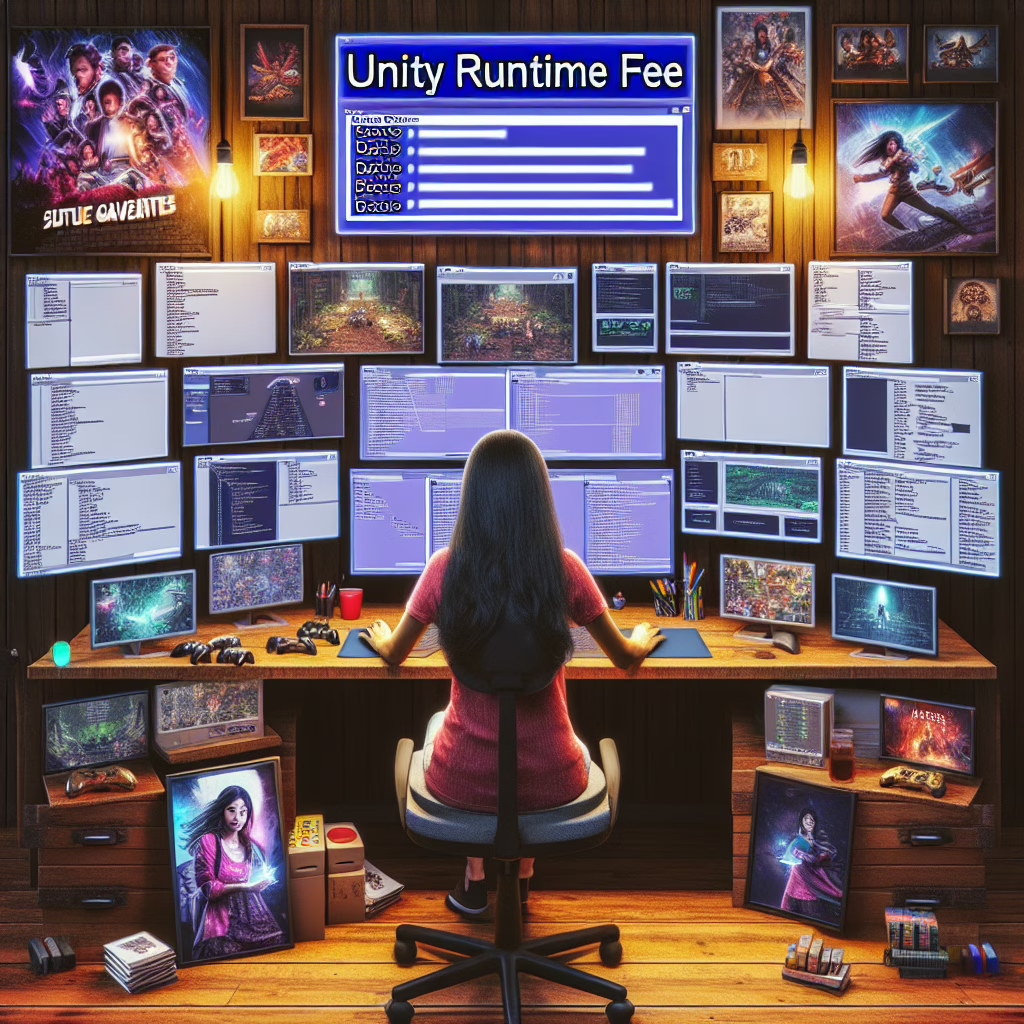In the ever-evolving world of game development, the recent announcement from Unity regarding its runtime fee has stirred up quite the conversation among both developers and gamers. Imagine this: you’ve poured your heart and soul into creating a game, and just when you think you’re ready to launch, bam! You’re faced with new fees that could impact your bottom line. It’s like finding out there’s a cover charge at your favorite arcade—unexpected and a bit annoying!
The Runtime Fee: What Is It?
Let’s break it down. The Unity runtime fee is essentially a charge that developers will incur based on the number of installations of their games. Yes, you heard that right! If your game becomes a hit and millions of players download it, Unity will be knocking on your door for a slice of that pie. It’s akin to having a very enthusiastic roommate who insists on sharing the rent after discovering you’ve been hosting all-night gaming parties.
This new fee structure is designed to help Unity generate more revenue, which they argue will ultimately benefit developers by improving their tools and services. However, many developers are raising their eyebrows, wondering if this is a clever business move or just an excuse to dip into their wallets.
The Developer Perspective: A Mixed Bag
For many game creators, this change feels like being asked to pay for the Wi-Fi after they’ve already enjoyed free coffee in a cozy café. Some developers see potential benefits in enhanced support and features from Unity. Others, however, feel like they’re being held hostage by unexpected costs that could jeopardize their projects.
Developers who plan their finances meticulously now find themselves in a precarious situation. A successful game could lead to hefty fees piling up faster than laundry on a Sunday afternoon. The uncertainty creates an environment where planning becomes more challenging than finishing a level in Dark Souls!
What Gamers Should Know
Now let’s pivot to you, the gamers. You might be wondering how this affects your gaming experience. Well, if your favorite indie developer struggles with these new fees, it could mean fewer games hitting the market or even some beloved titles disappearing faster than snacks at a LAN party.
If developers decide that supporting Unity isn’t worth the investment, we could see a shift towards alternative engines. This might not only lead to fewer games but also less innovation as studios decide to play it safe rather than risk financial ruin. Consider how the landscape might change, possibly leading to more diverse gaming experiences from other platforms.
The Future of Unity: Hopes and Concerns
Looking ahead, we can only hope that Unity listens to its community—after all, without developers, there would be no games! The gaming industry thrives on creativity and innovation; therefore, it’s essential for platforms like Unity to foster an environment where developers feel valued rather than exploited. A partnership rather than a transaction is often what creators seek.
As we venture deeper into 2025, we must keep our fingers crossed (and maybe our wallets closed) that Unity finds a way to balance its financial goals with the needs of creators. After all, what’s more important? A few extra bucks or an entire ecosystem of thriving games? Let’s put our money where our joy is!
Conclusion: Let’s Hear Your Thoughts!
The discussion around Unity‘s runtime fee is bound to continue as both developers and gamers navigate this new landscape. What do you think? Is this fee going to stifle creativity or push developers towards better solutions? Share your thoughts below!
A big shoutout to The Verge for sparking this important conversation about the future of game development. Thank you for keeping us informed!
For more insights into industry updates, check our articles on LG removing DTS audio from its 2025 TVs and Nvidia’s new Game Ready Drivers.

